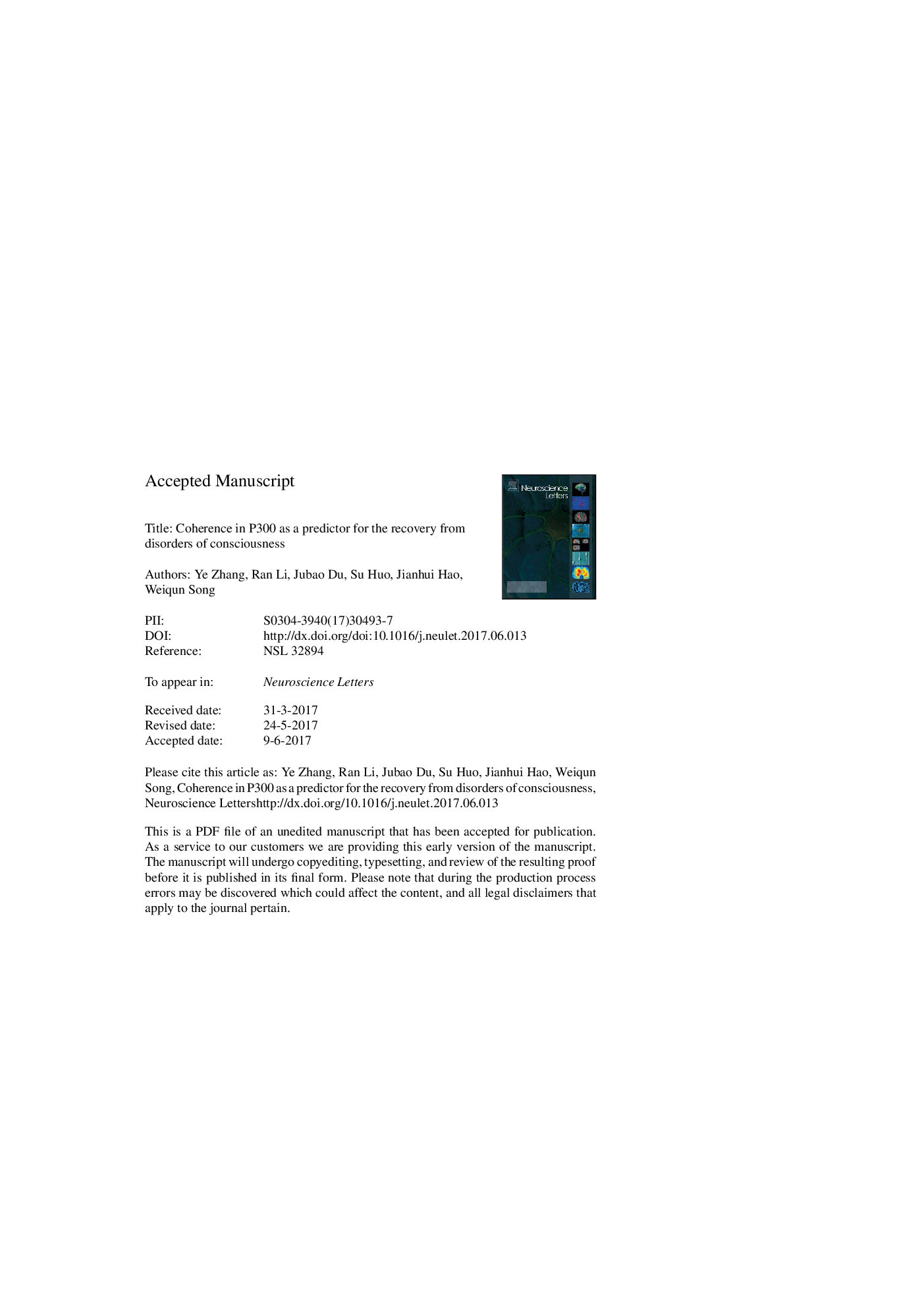| Article ID | Journal | Published Year | Pages | File Type |
|---|---|---|---|---|
| 5738152 | Neuroscience Letters | 2017 | 16 Pages |
Abstract
Accurate and reliable prognostic judgments for disorders of consciousness (DOCs) can provide useful information for clinicians in the establishment of appropriate care plan, and may affect end-of-life decisions of caregivers. But until now no certain or standardized prognostic indicator has been constructed to predict the probability of awareness recovery. This study aims to assess higher-order cortical information processing in DOCs by event-related potential (ERP) and determine the value of P300 to predict the long-term prognosis. Two locked-in (LIS) patients and eighteen DOCs were evaluated with a hierarchical cognitive assessment by ERP. We used subject's own name (SON) as a deviant stimulus, 1000Â Hz tone and subject's derived name (SDN) as a standard stimulus in two paradigms respectively. P300 elicited by SON was used to assess the information processing. The patients' clinical outcomes were followed up at 2, 6 and 12 months after ERP recordings. The results showed that a P300 component was observed in both paradigms in two LIS patients. All of MCS and four out of nine UWS/VS showed an intact P300 in either paradigm. All of the five patients with P300 in both paradigms were finally awake after 12 months, while none of the eight patients without P300 regained consciousness. A highly significant relationship between P300 and subsequent recovery was found. The results provide evidence that P300 in the hierarchical bedside neurophysiologic oddball procedure can accurately characterize the level of cognitive preservation, and may serve as an alternative tool to predict the likelihood of recovery of DOCs.
Related Topics
Life Sciences
Neuroscience
Neuroscience (General)
Authors
Ye Zhang, Ran Li, Jubao Du, Su Huo, Jianhui Hao, Weiqun Song,
